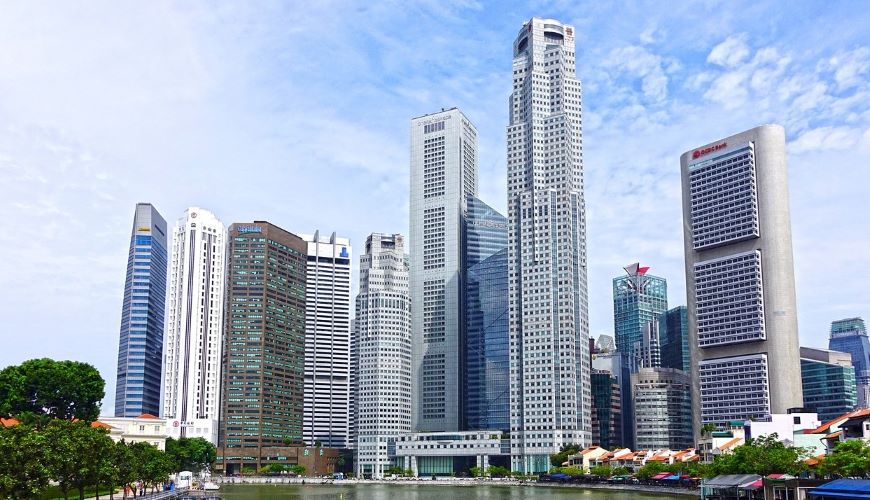SINGAPORE companies are keen to invest in Johor but face challenges on talent shortages, cross-border movement needs and a fragmented investment landscape, indicated a survey of 160 businesses by the Singapore Business Federation (SBF).
Of those surveyed, 93 per cent view Johor as an attractive investment destination, with 50 per cent already operating in the state.
SBF engaged the Singapore businesses across various industries through online surveys and in-person focus groups to gather suggestions on the development of the proposed Johor-Singapore Special Economic Zone (JS-SEZ).
“The JS-SEZ concept represents a bold and exciting new chapter in our economic collaboration,” said Lim Ming Yan, chairman of SBF, during the launch of the survey report in conjunction with the JS-SEZ Joint Investor Forum on Thursday (Jul 11).
“By leveraging Johor’s resources and competitive advantages, together with Singapore’s infrastructure and connectivity, we can create a dynamic economic zone that will attract investments, foster trade and generate employment opportunities,” Lim added.
The two countries signed a memorandum of understanding in January this year to work on a JS-SEZ to strengthen economic connectivity across the Causeway.
Malaysia’s Economy Minister Rafizi Ramli, who is representing the country in bilateral talks with Singapore, revealed at a briefing in Kuala Lumpur on Wednesday that the two sides “should be able to sign a deal” and unveil the SEZ in September.
While Singapore has not mentioned any target date for such a signing, the SEZ project was among projects discussed only last month between Singapore and Malaysia’s premiers during PM Lawrence Wong’s visit to Kuala Lumpur.
Teo Siong Seng, chairman of JS-SEZ Singapore Business Working Group, said: “The enthusiastic response to our report clearly signals the JS-SEZ’s great potential for our region. This isn’t just another project – it’s a potential game-changer for both Malaysia and Singapore.”
Before the potential can be realised, talent shortages pose a major concern for Singapore companies. Nearly 60 per cent of the businesses polled reported difficulties in sourcing skilled workers in Johor, with additional challenges in attracting Singaporean talent to work across the border.
The manpower crunch is attributed to several factors: 60 per cent of businesses cited employment pass issues; 58 per cent pointed to skill gaps in the Malaysian labour force; and 21 per cent indicated salary mismatches.
The findings also highlighted the need for improved cross-border movement for both people and goods. Of the businesses surveyed, 36 per cent expressed hopes for better connectivity in terms of a special immigration lane for people, to facilitate smoother travel.
The movement of goods, on the other hand, is hindered by traffic congestion, differing import tax regimes and customs procedures, with 55 per cent of businesses citing difficulties in handling tax issues and 48 per cent indicating that more expedient cargo clearance is crucial for efficient flow.
Businesses also reported obstacles in obtaining necessary permits and licences due to the fragmented investment landscape between Singapore and Johor.
To navigate the complex landscape, 58 per cent of businesses expressed a desire for a joint investment promotion agency to market the SEZ and facilitate investor engagement, and 33 per cent desired a platform to facilitate collaboration among each other for self-help.
With the findings, the Working Group recommended that the SEZ should focus on sectors such as manufacturing, logistics, digital industries, healthcare and education. These sectors draw on the respective advantages of the two economies, including Johor’s favourable operating costs and land availability, as well as Singapore’s strengths in connectivity, branding, talent pool and headquarters functions.
Coordinated governmental frameworks and a designated governing body are necessary to ensure tailored governance within JS-SEZ, which will be crucial to the success of the zone, the Working Group noted.
It added that embracing flexible approaches such as a policy sandbox will facilitate closer economic integration and create a flexible, inclusive economic space – another key success factor.
The forum was jointly organised by SBF and Malaysia’s Invest Johor. Some 200 businesses, including those with current operations in Johor or looking to invest there, attended the event at Amara Singapore.
Source: The Business Times
Link: Here
August 01, 2024













